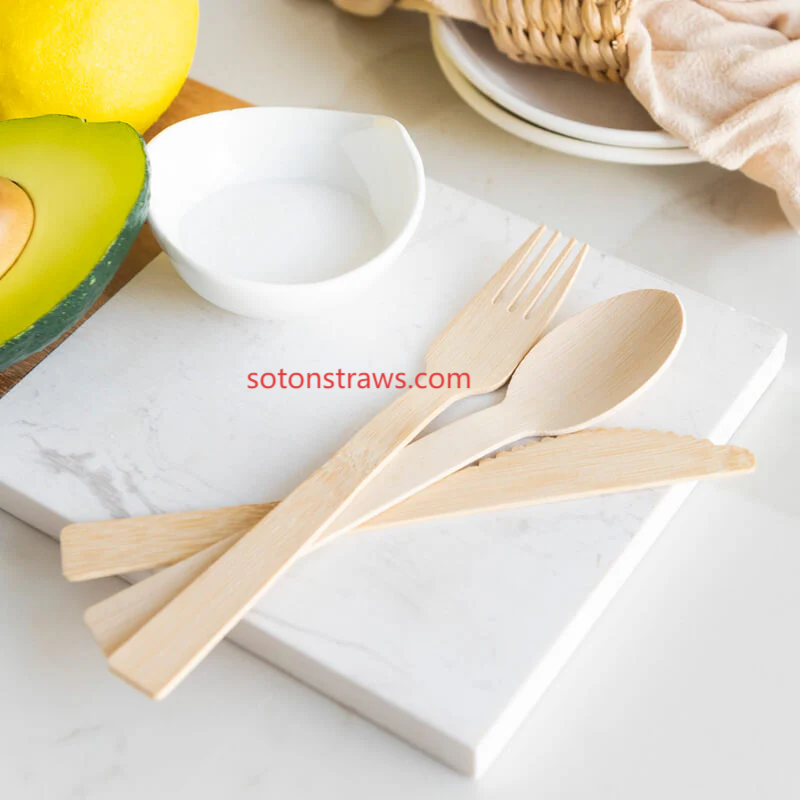The conversation around our daily habits and their impact on the environment has never been more prevalent, with a significant focus on the items we use for eating. Among the various options available, a particular category has risen to prominence for those seeking to make responsible choices. This category is eco-friendly cutlery , which represents a shift away from traditional plastic utensils towards materials that aim to reduce our ecological footprint. The debate often centers on whether it is better to use reusable items that require washing or to opt for single-use items designed to break down naturally. This discussion is not just about personal convenience; it is about evaluating the entire lifecycle of the products we use, from creation to disposal. Understanding the nuances of this choice is crucial for anyone looking to align their daily practices with a more sustainable lifestyle.
Many people assume that any product labeled as disposable and compostable is inherently the better option for the environment. However, the reality is more complex. The production of such items, often from plant-based materials, still demands resources like water and land, and they require very specific industrial composting conditions to break down as intended. If these disposables end up in a regular landfill, where they are deprived of oxygen, they may not decompose effectively and can still contribute to environmental concerns. This challenges the simplistic view that all compostable disposables are the ultimate solution, highlighting the importance of proper waste management infrastructure that is not available everywhere.
On the other side of the debate is the classic reusable option. The environmental advantage of a sturdy, reusable piece of eco-friendly cutlery is that it can be used hundreds of times over its lifespan. The key question, however, revolves around the washing process. The environmental cost of cleaning these items—the water, energy, and detergent used—must be factored into their overall footprint. Handwashing typically uses less energy but more water, while dishwashers, especially modern efficient models, can use less water but require electricity. The source of that energy (whether from renewables or fossil fuels) further complicates the calculation. Therefore, the greenest washing method depends heavily on individual behavior and local utilities.
This is where innovation and responsible manufacturing come into play. The ideal solution is not just about the end product but about supporting companies that prioritize a holistic approach to sustainability. This means looking for partners who are committed to ethical sourcing of materials, energy-efficient production processes, and designing for longevity and true end-of-life recyclability or composability. It is about creating a circular economy where products are made to be used effectively and then reintegrated into the production cycle, minimizing waste. Consumers are increasingly seeking out these kinds of comprehensive solutions from the brands they support.
For those who are thoughtful about their environmental impact, the decision is rarely black and white. It involves a blend of factors: the availability of composting facilities in your community, your personal washing habits, and a preference for supporting sustainable innovation. The most impactful choice one can make is to be informed and intentional, moving beyond marketing claims to understand the full story behind the products we bring into our lives. This mindful approach is what truly drives positive change and encourages industries to adopt better practices.
For businesses and individuals seeking reliable, thoughtfully crafted solutions, turning to a dedicated manufacturer like Soton provides a clear path forward. Our factory specializes in producing high-quality sustainable dining products that are designed with the entire lifecycle in mind. We are committed to advancing the conversation beyond simple disposables versus reusables by investing in material science and production efficiency. Soton focuses on creating durable, functional, and genuinely sustainable eco-friendly cutlery that meets the demands of the modern consumer. By choosing to partner with us, you are not just buying a product; you are investing in a philosophy of responsible consumption and supporting a manufacturing process that values environmental stewardship at every stage. Let Soton be your source for products that help you make a real difference.Click https://www.sotonstraws.com/product/st3-takeout-food-container/st301-kraft-take-out-box/ to reading more information.



